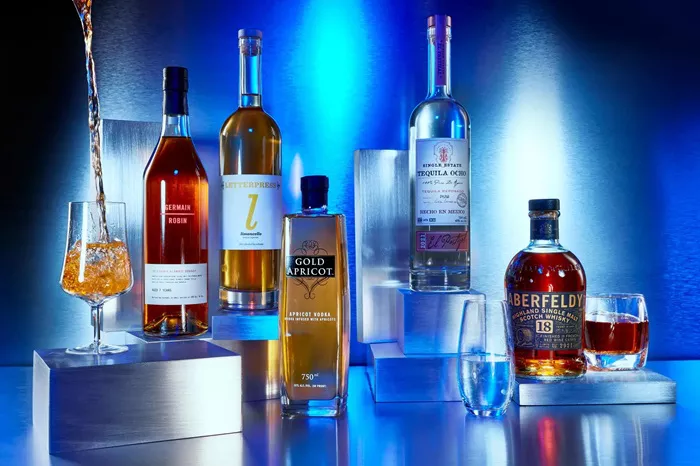In recent years, the beverage industry has witnessed a remarkable surge in the popularity of non-alcoholic spirits. As consumer preferences continue to evolve towards healthier lifestyles and mindful drinking habits, the demand for non-alcoholic alternatives has soared. But what exactly makes a non-alcoholic spirit? Delving into the intricacies of production, ingredients, and consumer expectations, this article examines the essence of non-alcoholic spirits and the factors contributing to their growing appeal.
Understanding the Concept: What Makes a Non-Alcoholic Spirit
At its core, a non-alcoholic spirit is a beverage designed to replicate the sensory experience of traditional alcoholic spirits without the presence of alcohol. Unlike alcohol-free beers or wines, which are made by removing alcohol from their alcoholic counterparts, non-alcoholic spirits are crafted from scratch using a variety of botanicals, herbs, spices, and other natural ingredients. The aim is to capture the complex flavors and aromas associated with spirits such as gin, vodka, rum, or whiskey while providing a sophisticated alternative for consumers who choose to abstain from alcohol.
Crafting Complexity: What Makes a Non-Alcoholic Spirit Unique
One of the key distinguishing factors of non-alcoholic spirits is their complexity of flavor. While alcohol often serves as a carrier for botanical essences and aromatics in traditional spirits, non-alcoholic counterparts must rely solely on the inherent qualities of their ingredients to achieve depth and character. This necessitates a meticulous selection of botanicals and a nuanced approach to blending, resulting in a beverage that offers layers of taste sensations reminiscent of its alcoholic counterparts.
The Role of Botanicals: What Makes a Non-Alcoholic Spirit Flavorful
Botanicals play a central role in shaping the flavor profile of non-alcoholic spirits. From juniper berries and citrus peels to exotic spices and herbs, each botanical contributes its unique aroma and taste, contributing to the complexity and depth of the final product. The careful balance of botanicals is essential in creating a harmonious blend that captures the essence of the intended spirit, whether it’s the crisp freshness of gin or the smoky richness of whiskey.
Innovative Distillation Techniques: What Makes a Non-Alcoholic Spirit Distinctive
Unlike traditional distillation methods used in alcoholic spirits production, non-alcoholic spirits are crafted using innovative techniques that preserve the integrity of botanical flavors while eliminating alcohol. One such method is vacuum distillation, which operates at lower temperatures to extract delicate aromas without causing damage to the botanicals. Another approach involves maceration, where botanicals are steeped in water or a neutral base liquid to infuse their flavors before being carefully distilled or blended to create the final product.
The Importance of Balance: What Makes a Non-Alcoholic Spirit Palatable
Achieving the right balance of flavors is crucial in crafting a palatable non-alcoholic spirit. Too much of certain botanicals can overpower the palate, while insufficient complexity may result in a lackluster drinking experience. Master blenders and distillers meticulously fine-tune the recipe, adjusting botanical ratios and refining production techniques to achieve a harmonious balance of sweetness, bitterness, acidity, and spice. The end goal is to create a beverage that not only mimics the taste of its alcoholic counterpart but also stands on its own as a satisfying drink.
See Also: Exploring the World of Rum: What is the Best Rum to Buy?
Meeting Consumer Expectations: What Makes a Non-Alcoholic Spirit Appealing
In addition to flavor complexity, consumer expectations play a significant role in shaping the appeal of non-alcoholic spirits. Modern consumers seek more than just a substitute for alcohol; they desire a sophisticated beverage that offers a multisensory experience. This includes elegant packaging, refined branding, and the incorporation of unique serving suggestions to enhance the ritual of consumption. By catering to these expectations, non-alcoholic spirit brands can attract a broader audience and position themselves as viable alternatives in the beverage market.
Health and Wellness Trends: What Makes a Non-Alcoholic Spirit Relevant
The rise of health and wellness trends has further propelled the popularity of non-alcoholic spirits. As more individuals prioritize physical and mental well-being, there is a growing demand for beverages that align with these values. Non-alcoholic spirits offer a guilt-free indulgence for those seeking to enjoy social occasions without compromising on their health goals. With zero or minimal calories and no hangover-inducing effects, these beverages provide a refreshing alternative for mindful drinkers looking to savor the moment without the negative consequences associated with alcohol consumption.
Cultural and Social Shifts: What Makes a Non-Alcoholic Spirit Trendy
Cultural and social shifts also play a role in driving the trend towards non-alcoholic spirits. As attitudes towards alcohol consumption evolve and societal norms change, there is a greater acceptance of moderation and diversity in beverage choices. Non-alcoholic spirits cater to a diverse range of preferences, whether it’s individuals abstaining from alcohol for religious or personal reasons, designated drivers, or simply those seeking a lighter alternative for socializing. This inclusivity has contributed to the mainstream appeal of non-alcoholic spirits across various demographics.
The Future of Non-Alcoholic Spirits: What Makes Them Sustainable
Looking ahead, the future of non-alcoholic spirits appears promising, with continued innovation and market expansion on the horizon. As technology advances and ingredient sourcing becomes more sustainable, the quality and diversity of non-alcoholic options are expected to improve. Furthermore, as consumers become more conscious of environmental and social issues, there is a growing demand for ethically produced and environmentally friendly products. Non-alcoholic spirit brands that embrace these values and prioritize sustainability are likely to thrive in the evolving beverage landscape.
Conclusion
In conclusion, what makes a non-alcoholic spirit truly remarkable is its ability to offer a sophisticated and satisfying drinking experience without the presence of alcohol. From the careful selection of botanicals to innovative distillation techniques and a keen understanding of consumer preferences, non-alcoholic spirits represent the epitome of craftsmanship and innovation in the beverage industry. As the demand for healthier, more mindful drinking choices continues to grow, non-alcoholic spirits are poised to remain a relevant and appealing option for consumers seeking both flavor and wellness in their beverage selections.


